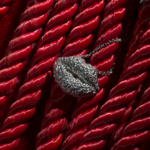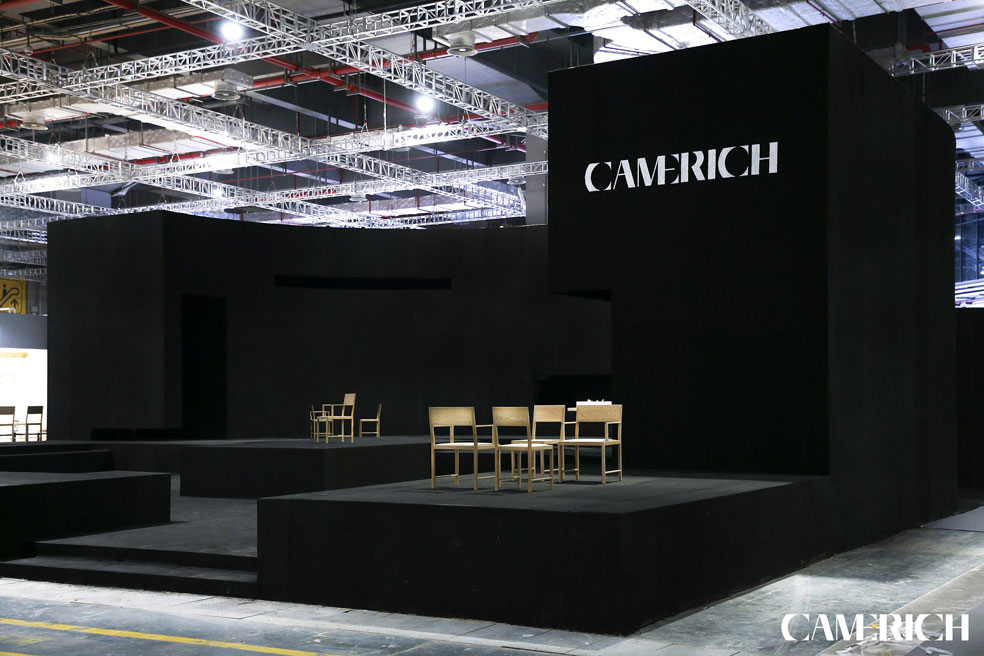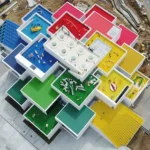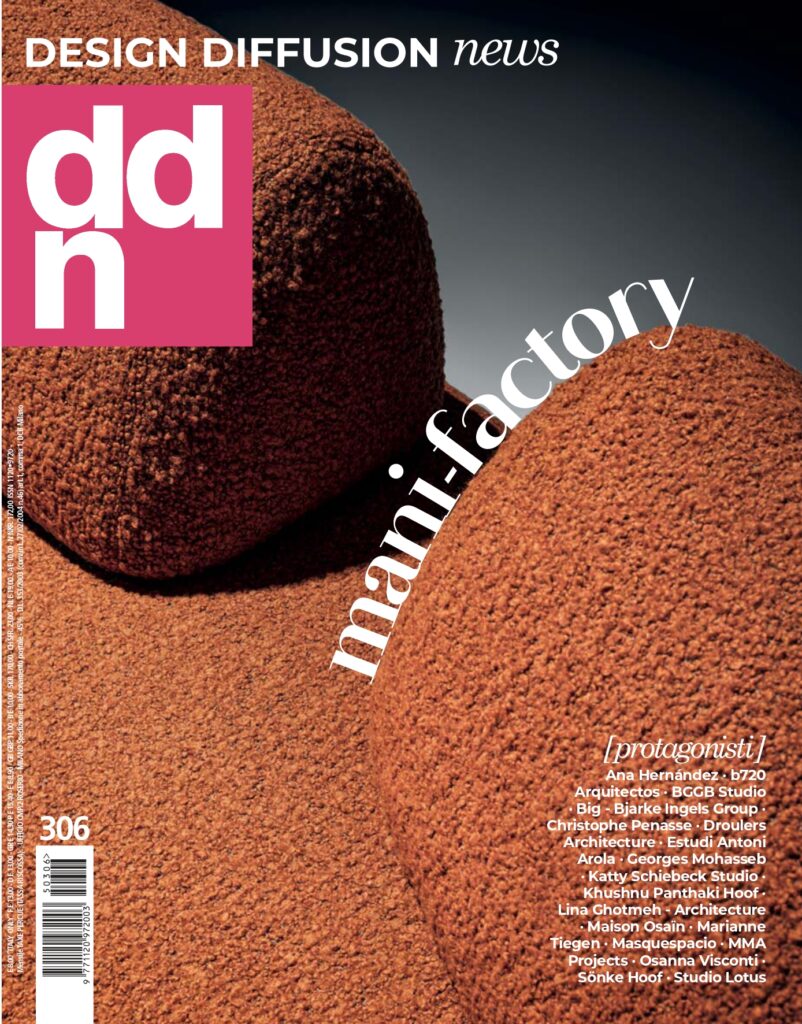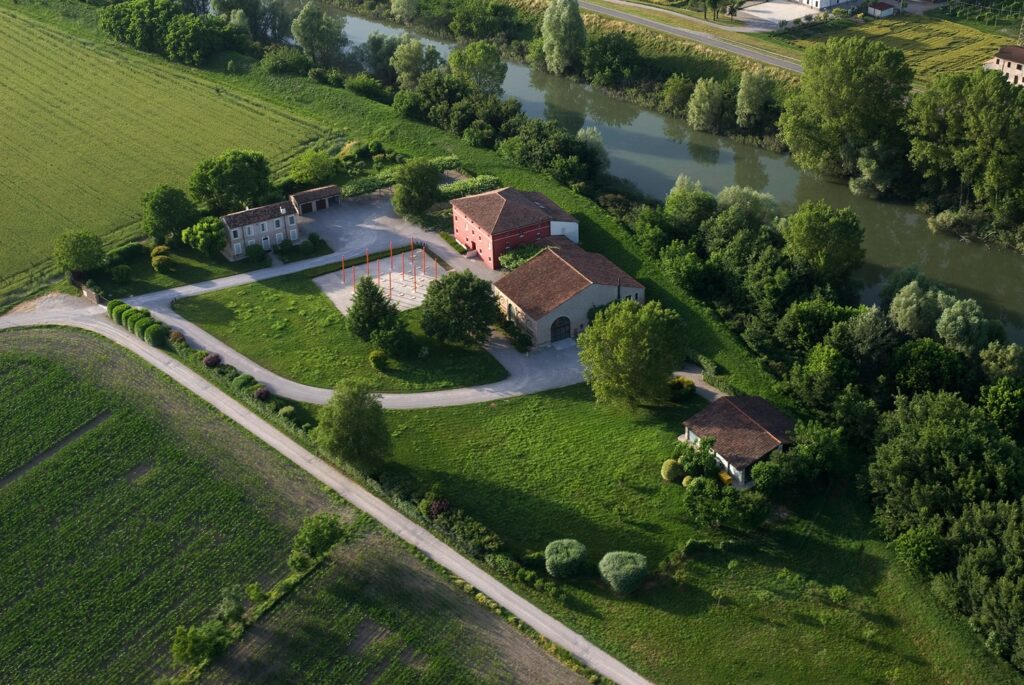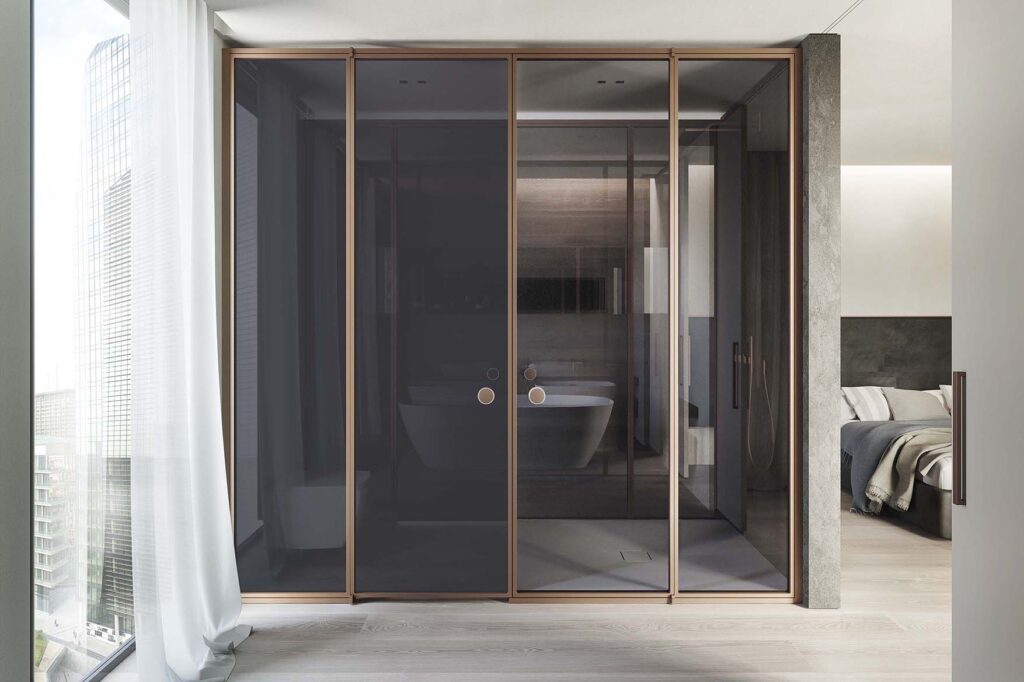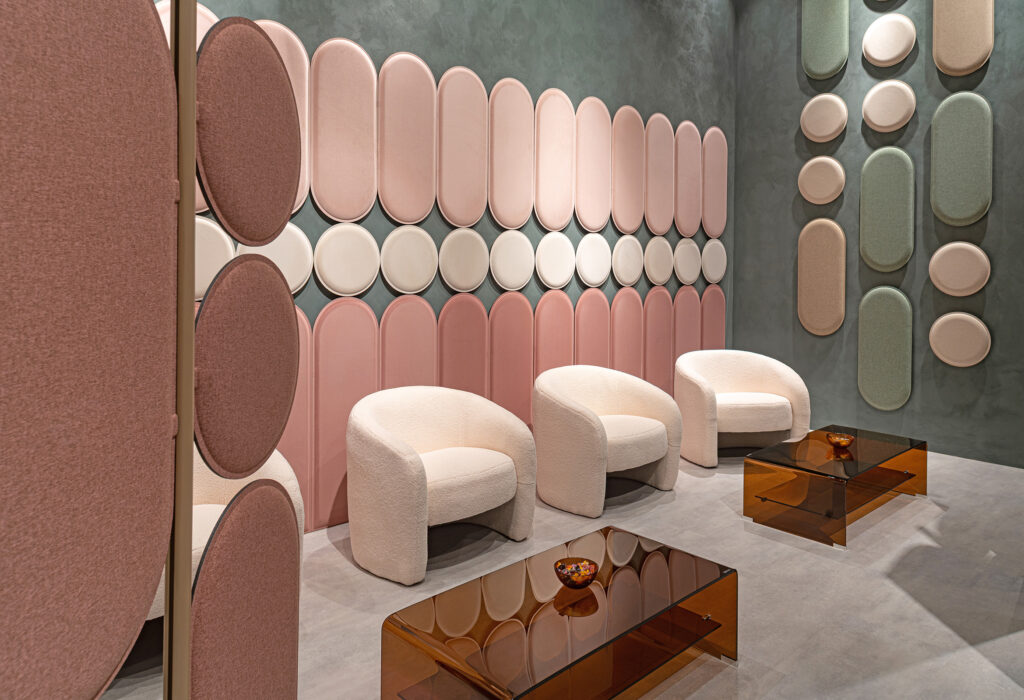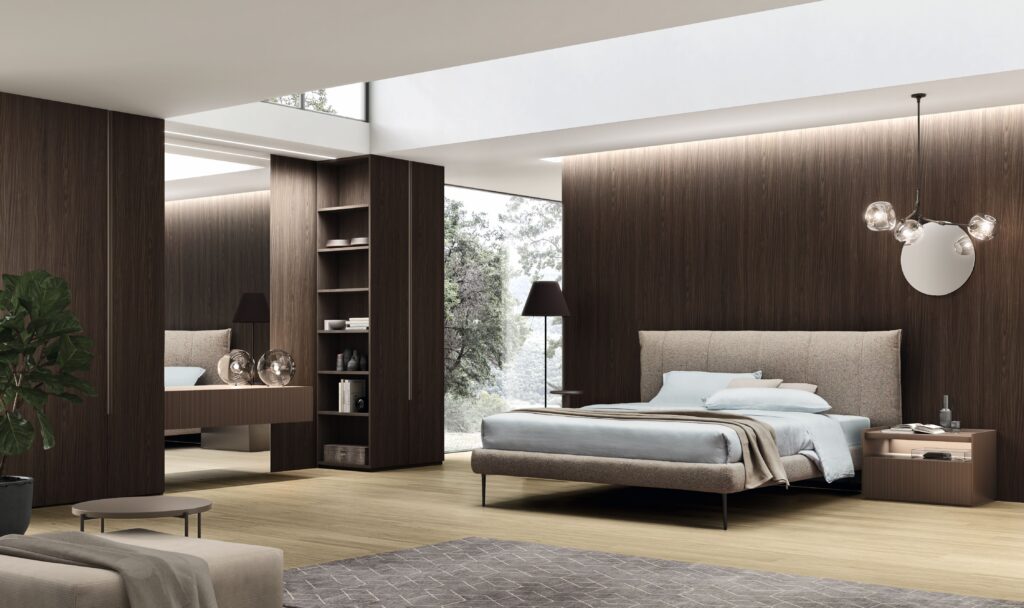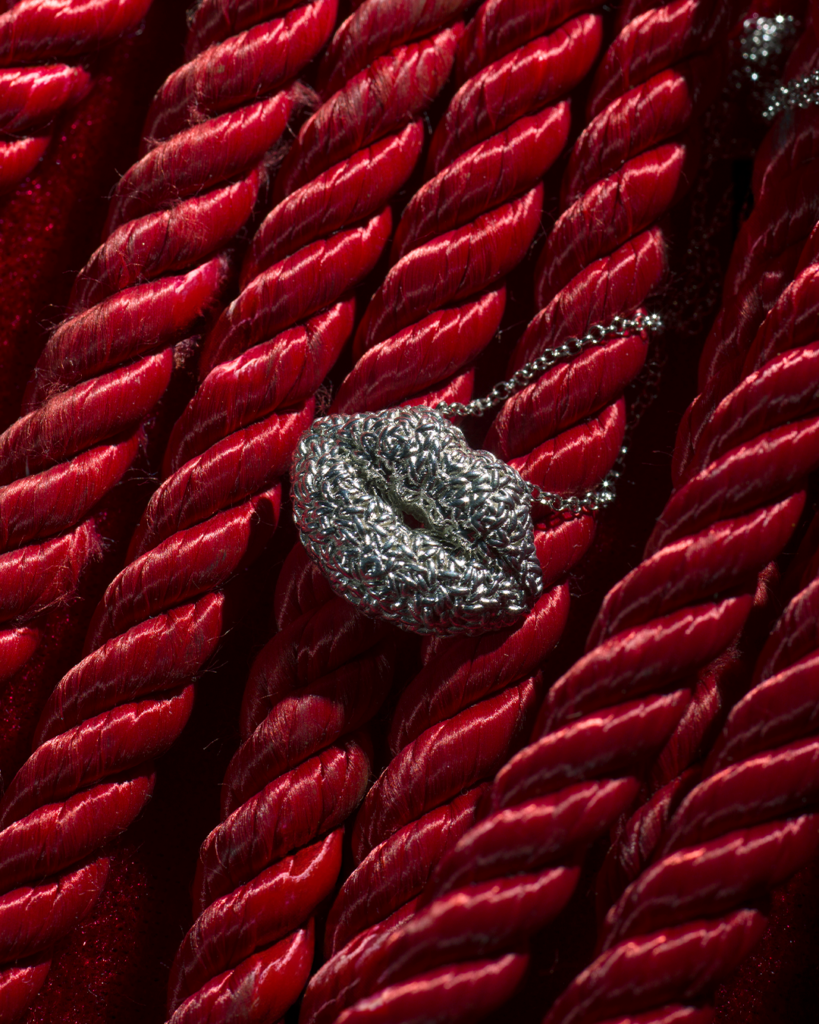Chinese company Camerich, after the hall designed by Álvaro Siza at CIFF Shanghai 2019, has recently come back with a new temporary architecture. At CIFF Shanghai 2020, regularly held from 7 to 11 September, despite the global pandemic, Camerich presented “The Sculpted Promenade”, a pavilion designed by Neri & Hu.

Camerich’s set-up is the ideal continuation of the Portuguese Elephant, 2019. Álvaro Siza designed an empty hall where his products and a prototype of the Baiana chair, officially launched this year, were displayed. Neri & Hu draw inspiration from Álvaro Siza’s architecture to design the space for the 2020 exhibition, which reflects on the Baiana chair, the only product showcased at CIFF Shanghai 2020.
Discover the pavilion designed by Álvaro Siza for Camerich at CIFF Shanghai 2019
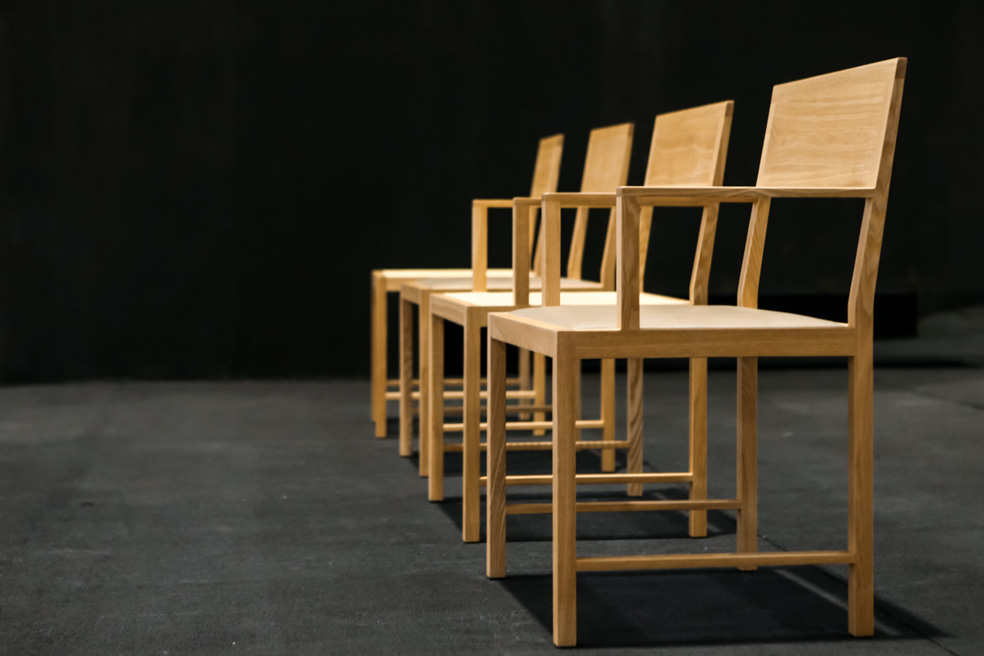
To reproduce the spatial relationships that Siza creates in his architecture, Neri & Hu designed a very large open space where the Baiana chair is the protagonist. The main side was like a large square, where people could move freely, sit and talk, as if they were outdoors. People and chairs were the actors of a scene revolving around the chairs, which played the main role.
Temporary architecture: discover the booths at Salone del Mobile 2019

The architecture by Neri & Hu: a stage for Álvaro Siza’s Baiana chair
This large square led to the pavilion behind it, a monolithic solid with horizontal openings like blades of light and small openings to peer inside. The entrance led to a reading room, an ideal space for meditation and silence inside a generally crowded and noisy fair. Finally, the pavilion housed large screens with images of the company. A slightly sloping walkway connected the two ends of the booth, characterized by platforms at different heights. Total black, inside and outside, was interrupted only by the openings placed at different heights.
Temporary architecture: what happens to Serpentine Pavilions?

The windows, inspired by the Chinese concept of “jiejing”, did not want to convey an idea of voyeurism, as would be natural in the West. On the contrary, from the Chinese point of view, they allow passersby to look at the landscape from different angles, just like in a typical Chinese garden. Moving around and inside the pavilion, people could get to know better Camerich, its research and the design of Álvaro Siza.
Discover the pavilion designed by Álvaro Siza for Camerich at CIFF Shanghai 2019




